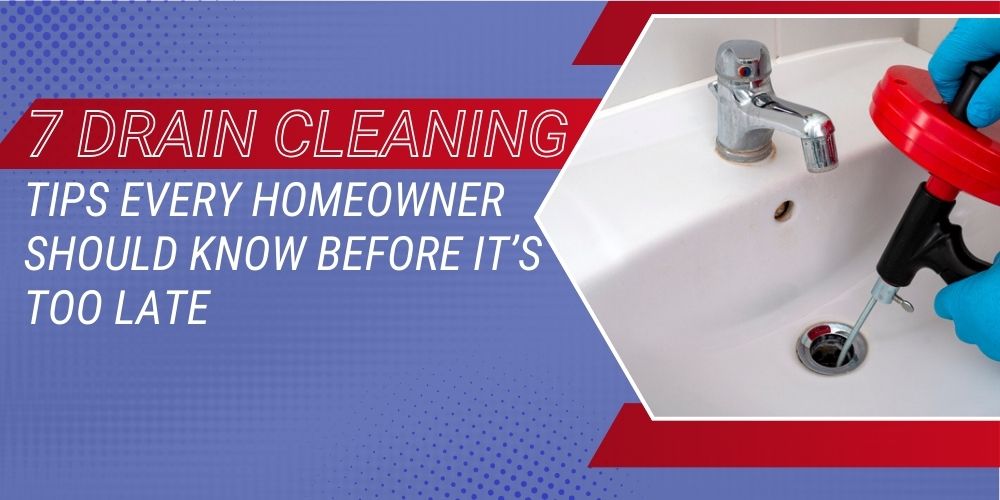What’s the worst plumbing issue you’ve had to deal with? A clogged drain might seem minor initially, but it can quickly become costly if ignored. Clogs often start small, but when left unchecked, they can lead to slow drainage, backups, or even damage to your plumbing system. Fortunately, simple habits can prevent most blockages before they start. Keep reading and learn the seven practical drain cleaning tips to protect your pipes, save money, and avoid headaches.
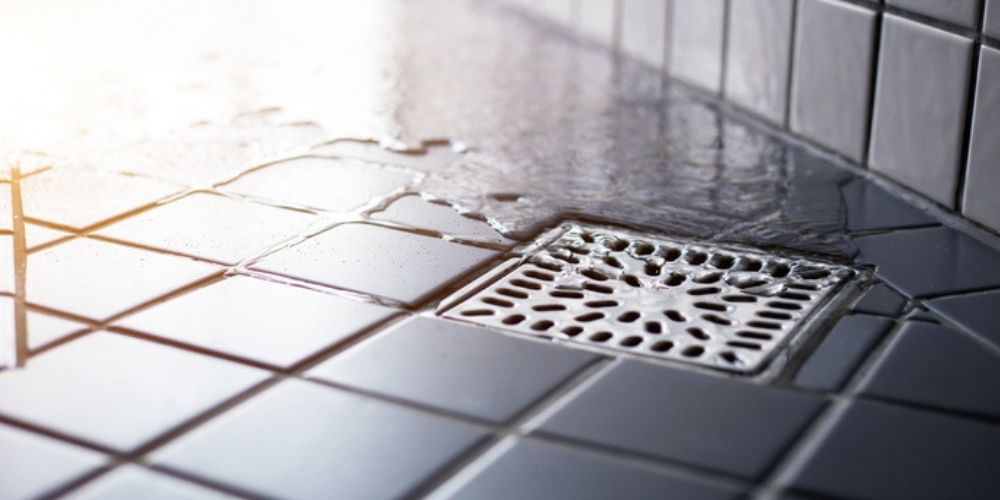
1. Install Drain Screens
Drain screens offer a simple, low-cost solution to keep debris out of your pipes and help prevent clogs. It is a barrier to keep unwanted materials out of your plumbing system. Here’s why you should consider using drain screens:
- Captures hair in bathroom drains, preventing buildup over time.
- Blocks food particles in kitchen sinks to avoid clogs.
- It keeps small debris from entering pipes and causing blockages.
Drain screens are a low-cost way to protect your plumbing system and avoid frequent drain cleaning. These are the benefits:
- Reduces the need for professional drain cleaning: By catching debris early, you prevent clogs that require costly services.
- Prevents pipe damage: Debris buildup can cause pressure and corrosion inside pipes. Screens help avoid this damage.
- Extends pipe lifespan: Keeping pipes clear of debris reduces wear and tear, helping your plumbing last longer.
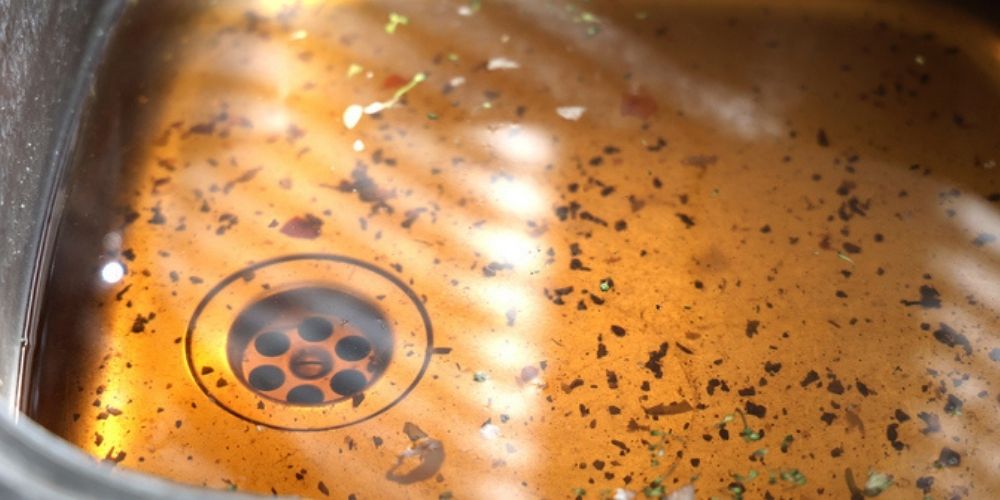
2. Never Pour Grease Down the Drain
Properly disposing of grease can save you from major backups and emergency plumbing calls. When grease enters your pipes, it doesn’t stay liquid for long. These are the reasons why grease causes clogs:
- Hot grease flows easily, but as it cools, it thickens and sticks to pipes, creating a sticky layer.
- Food particles cling to the grease, forming a sludge that narrows the pipe’s interior.
- Over weeks or months, the buildup becomes dense, eventually causing complete blockages.
- Cold water doesn’t dissolve grease; it worsens the clog by hardening it further.
Avoiding grease-related clogs is simple if you dispose of it correctly. The following drain cleaning tips will help you keep your pipes flowing smoothly:
- Let the grease cool, pour it into a container, and dispose of it in the trash rather than dumping it down the drain.
- Wipe the grease using paper towels before washing oily pans in the sink.
- Use strainers in your sink to catch any leftover grease or food particles.
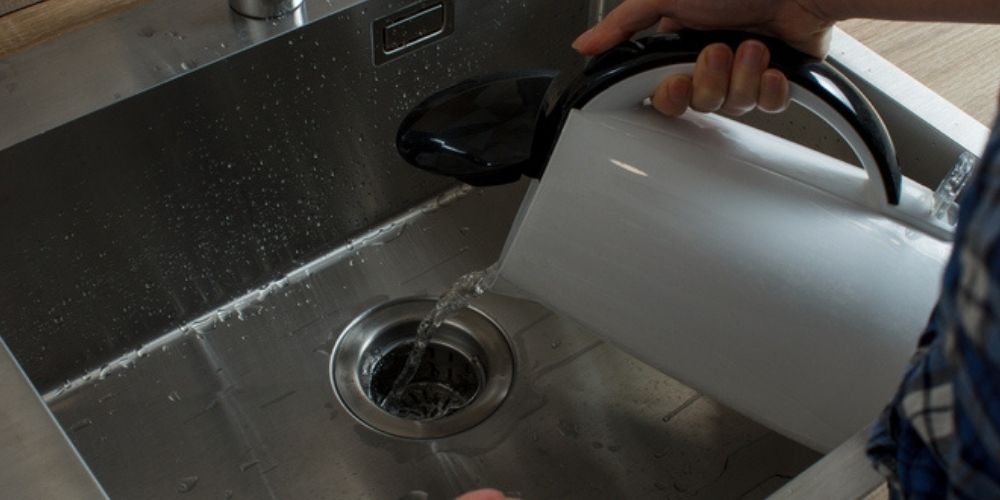
3. Rinse Drains with Hot Water
Flushing hot water through your drains regularly is a simple method to help stop clogs from developing. Over time, soap scum, grease, and debris stick to pipes, but hot water helps dissolve these substances before they harden. Here’s how it works:
- Hot water melts grease—preventing it from sticking to pipe walls.
- It washes away soap residue, which can otherwise trap food particles.
- Regular flushing prevents sludge buildup, keeping water flowing freely.
Consistent hot water rinses do more than clear minor buildup—they extend the life of your plumbing. By making this a weekly habit, you’ll avoid bigger issues. Here’s why it matters:
- It prevents major blockages by stopping buildup before it becomes severe.
- It helps you avoid using strong chemical cleaners that may wear down pipes over time.
- Keeps water pressure strong by maintaining clear pathways.
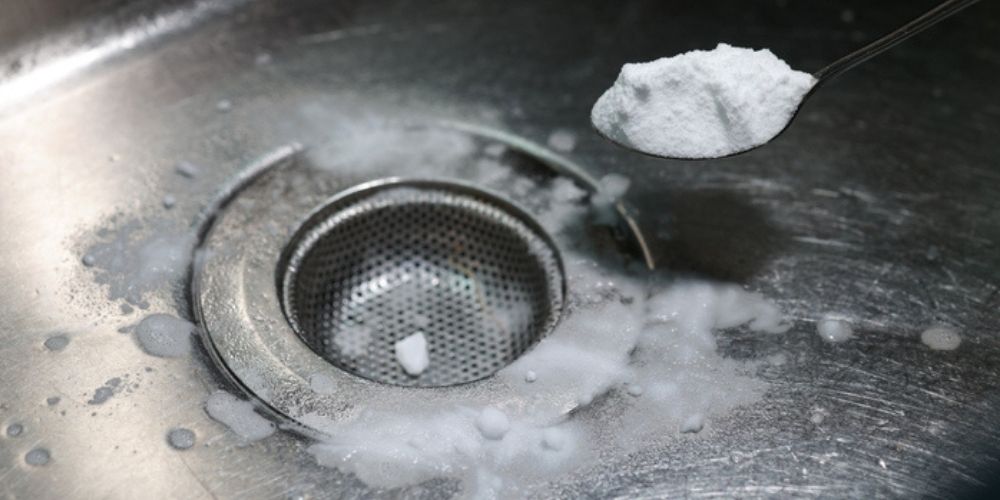
4. Use Baking Soda and Vinegar
If you’re looking for a safe DIY solution for minor clogs, baking soda and vinegar work wonders without harming your plumbing system as harsh chemical cleaners might. Here’s how it helps:
- Baking soda breaks down grease and grime inside pipes.
- The vinegar reacts with baking soda to loosen debris further.
- The mixture flushes out buildup safely when followed by hot water.
Unlike store-bought chemical cleaners, this natural method is gentle on your plumbing system and effective against clogs. Switching to these drain cleaning tips can make a big difference; here’s why:
- It avoids pipe corrosion caused by harsh chemicals over time.
- An eco-friendly option that doesn’t harm the environment or septic systems.
- It is an easy and affordable solution you can use regularly.
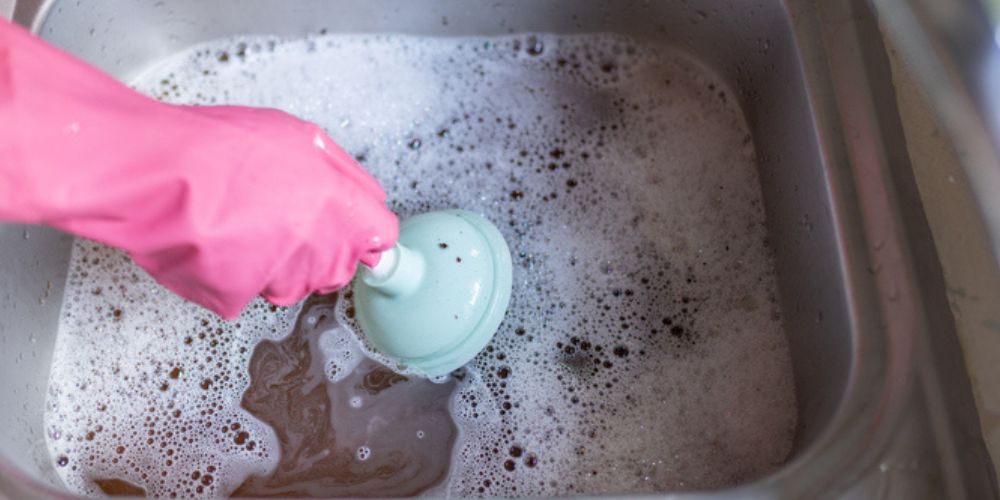
5. Pay Attention to Odors or Slow Drains
Foul odors or slow drainage in sinks or tubs often signal a more serious blockage within your plumbing system. Leaving these signs unaddressed can result in larger issues later on. Here’s what to watch for:
- Gurgling sounds indicate trapped air from a blockage.
- Sewage smells suggest decomposing debris stuck in pipes.
- Water pooling in sinks means the flow is restricted.
Calling a drain cleaning service in San Francisco, CA, at the first sign of trouble prevents expensive repairs. Professionals can clear blockages before they cause pipe damage. Here’s why acting fast pays off:
- It prevents sewage backups, which can cost thousands to fix.
- It also avoids pipe bursts caused by prolonged pressure buildup.
- Saves on emergency service fees by addressing issues early.
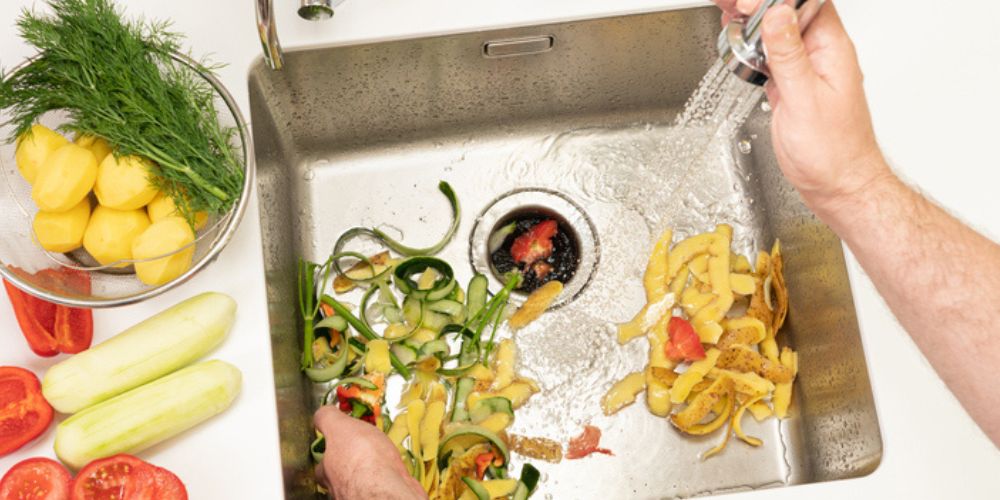
6. Avoid Flushing Non-Flushable Items
While flushing items like wipes, hygiene products, or paper towels may seem convenient, it often leads to blockages in sewer lines that require expensive repairs. Unlike toilet paper, these items don’t dissolve easily and can cause major problems in your plumbing system. Here’s what happens when wrong items go down the drain:
- Wipes labeled “flushable” still clog pipes because they don’t dissolve easily in water.
- Hygiene products expand when wet, creating obstructions in sewer lines.
- Paper towels trap other debris as it accumulates inside pipes.
Disposing of these items protects your plumbing system while reducing maintenance costs. Simple changes in habit prevent disasters. Here’s how it helps:
- Reduces the risk of mainline clogs, which are costly to fix.
- Extends pipe lifespan by preventing unnecessary strain.
- Lowers maintenance costs by avoiding frequent repairs.

7. Schedule Annual Drain Cleaning
Even with regular maintenance at home, professional cleanings ensure your entire plumbing system stays free from hidden obstructions like roots or heavy buildup. Professional drain cleaning services go beyond DIY methods by addressing deeper problems inside your pipes. Here’s what professionals focus on when tackling drain issues:
- Remove stubborn clogs unreachable by household tools.
- Clear out tree roots invading underground sewer lines.
- Spot possible problems early before they become urgent and costly.
Hiring experts ensures thorough drain cleaning while protecting long-term functionality. Regular care avoids early pipe damage. These are the long-term perks of annual service:
- Prevent recurring clogs through advanced techniques.
- Preserve pipe integrity using specialized equipment designed for deep cleaning.
- Reduce repair costs associated with neglected buildup over time.
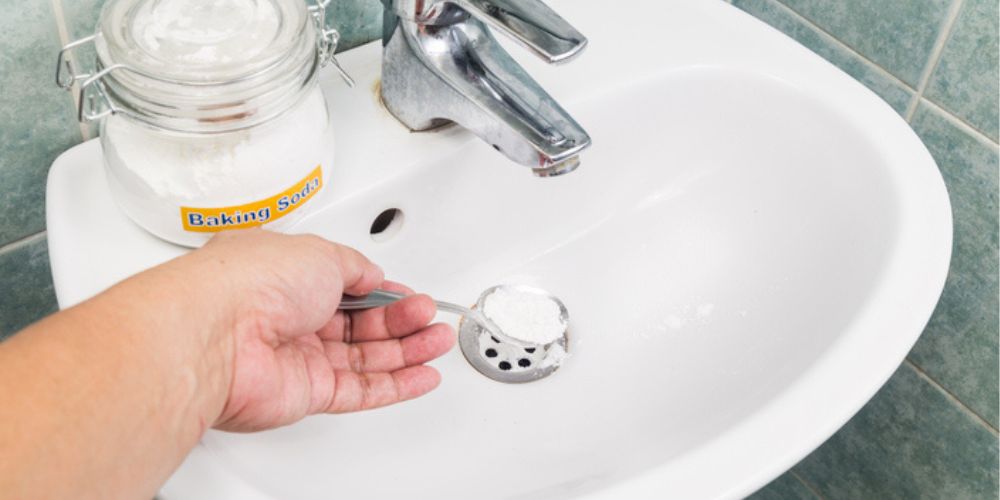
Drain Smarter, Not Harder!
Taking care of your drains with these seven proven drain cleaning tips helps avoid costly plumbing problems and keeps your home running smoothly. Simple habits like installing drain screens, avoiding grease down the drain, and flushing with hot water can make a big difference. Additionally, knowing when to call a professional drain cleaning service ensures that hidden issues don’t become emergencies.
Furthermore, smart pipe maintenance protects your home, saves money, and gives you peace of mind. Don’t wait for a significant problem—book a trusted drain cleaning service today and stay ahead of plumbing troubles.
References:
- Balkan, D. & Minyard, R. (2025, April 5). How to Clean & Unclog Drains Correctly. Retrieved from https://www.wikihow.com/Clean-Drains
- How To Unclog A Drain Without Harsh Chemicals – David Suzuki Foundation. (2025, January 8). Retrieved from https://davidsuzuki.org/living-green/how-to-unclog-a-drain/
- Tips for Keeping Drains Clog-Free. (2021, August 3). Retrieved from https://www.hgtv.com/design/remodel/mechanical-systems/drain-maintenance

